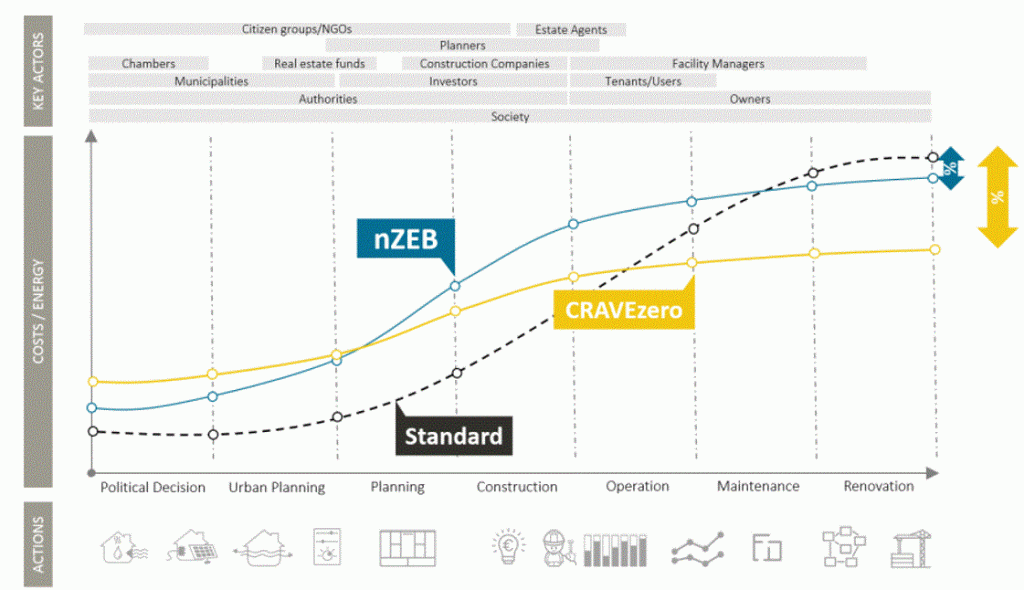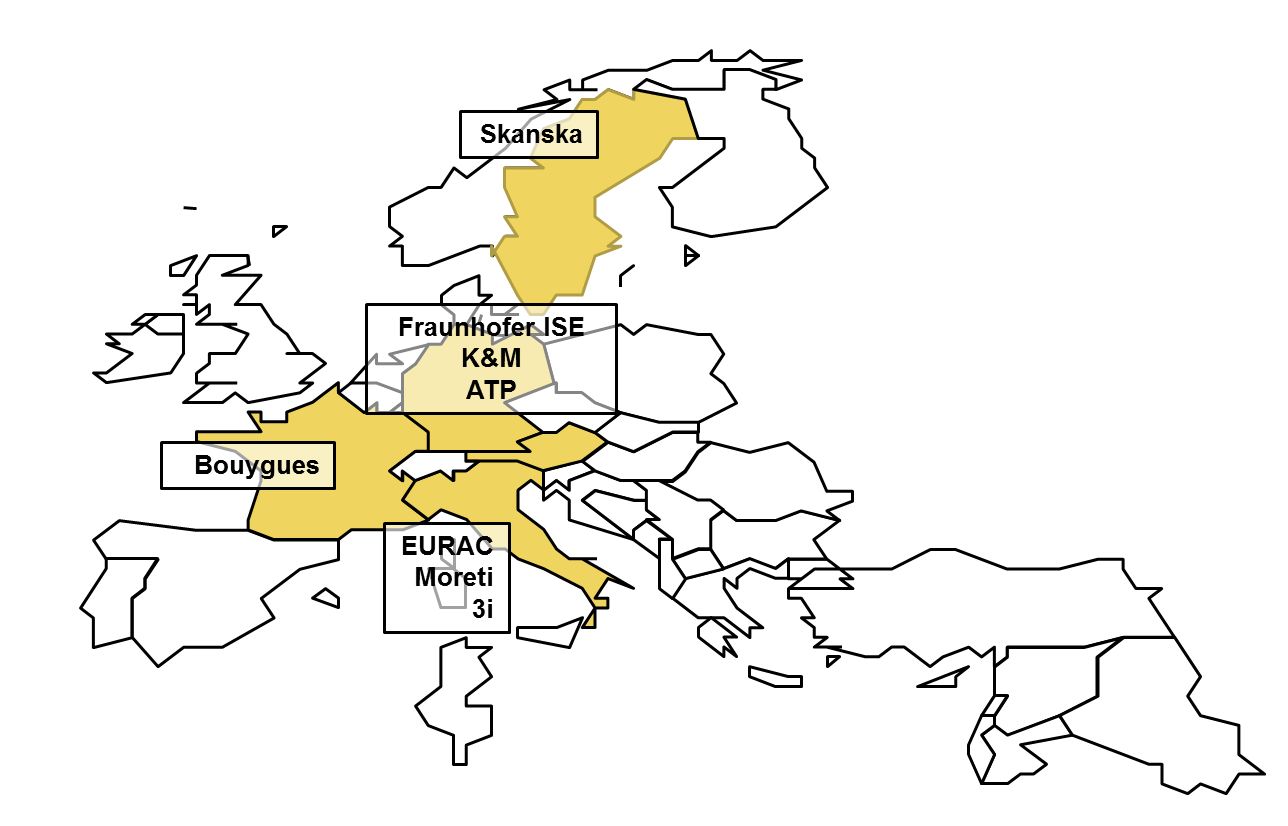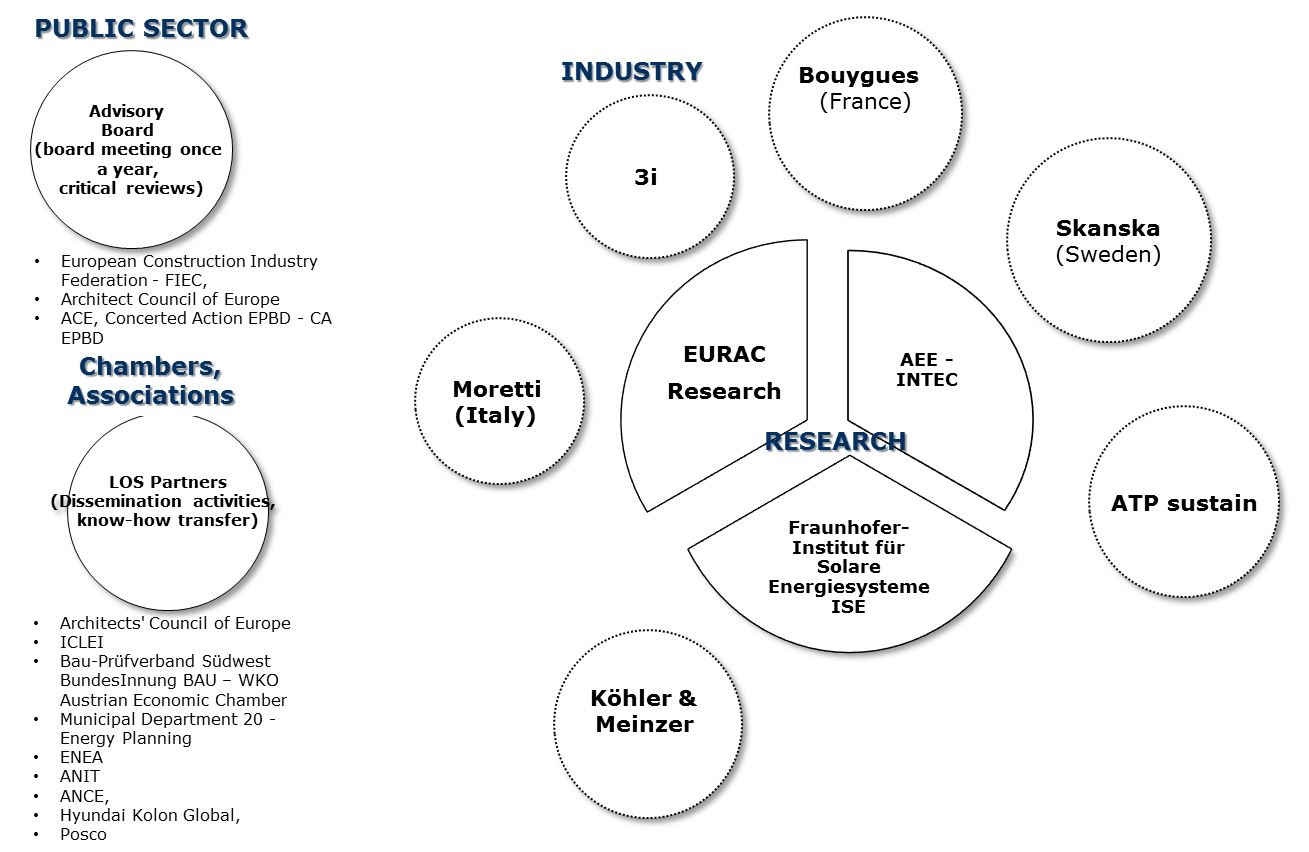About the Project
CRAVEzero focuses on proven and new approaches to reduce the costs of nZEBs at all stages of the life cycle. The primary goal is to identify and eliminate the extra costs for nZEBs related to processes, technologies, building operation and to promote innovative business models considering the cost-effectiveness for all stakeholders in the building’s life cycle.



Coordinator
Coordinator: Tobias Weiß – AEE INTEC Send an email

Cost optimal and nearly zero-energy performance levels are principles initiated by the European Union’s (EU) Energy Performance of Buildings Directive, which was recast in 2010. These will be significant drivers in the construction sector in the next few years because all new buildings in the EU from 2021 onwards have to be nearly zero-energy buildings (nZEBs); public buildings need to achieve the standard already by 2019.
While nZEBs realised so far have clearly shown that the nearly zero-energy target can be achieved using existing technologies and practices, most experts agree that a broad-scale shift towards nearly zero-energy buildings requires significant adjustments to current building market structures. Cost-effective integration of efficient solution sets and renewable energy systems are the major challenges.
CRAVEzero covers cost reduction cover all stages of the process, from urban planning, to building design, construction, until the building operation, while ensuring high building overall quality, considering in particular architecture and indoor environmental.
Main project pillars are:
CRAVEzero pinboard as a structured framework organizing all needed information and data to build
- an effective low life cycle cost NZEB business model
- reliable lifecycle cost databases with cost reduction potentials in processes and
- technologies methodologies, robust solutions and business models for low LCC NZEBs.

CRAVEzero transforms the whole construction cycle (from the design to the end of life) into an organized process, where the building acquires the features of a manufacturing product cutting off the uncertainties and failures during planning-construction-operation of the current practice, and reducing the associated costs.
Guidelines, databases and case studies for cost reduction of NZEB technologies, processes, business models are developed in close cooperation with the involved industry partners.
Working methodologies, ready-to-be-used customisable solutions enabling the cost reduction, speeding up the process and ensuring the high performance level of the new buildings, are addressed. Nevertheless, the nZEB promoted by CRAVEzero is not a unique model to be simply duplicated, but it is composed by a set of customisable solutions to be combined according to the local context and the needs of the users, ensuring the high quality of the built environment, preserving the identity of each single building, increasing user acceptance and keeping high real estate value. Highly replicable models aredeveloped, to lower design and construction costs, avoiding delays, optimising and making easier the management of development, construction and operational phase minimising errors and failures.
All the project results are included in the “CRAVEzero pinboard” – an interactive web-based structured framework supporting in developing low LCC NZEB business models.
It represents a support for developers and designers, supporting and driving them thanks to the project outcomes, as well as for other stakeholders with information on the manufacturers, and the whole supply chain, which must fulfil a set of requirements in terms of costs & quality insurance.
The project focuses on the market areas of the involved partners due to their expertise in the relative countries (technical and not technical features and barriers), but the approach is developed in a way that all stakeholders profit and are able to use the outcomes.
The consortium consists of research institutions and leading European construction and facility companies from France, Sweden, and Italy, as well as medium-sized planning companies and real estate developers from Austria, Grance, Sweden, Germany and Italy.

The approach is backed by inputs through several workshops with the different stakeholders of national “nZEB implementation working groups” (advisory board), other dissemination events at EU level, to enrich the project background, as well as to adjust the project strategic vision, better addressing the development activity.
The information on this website reflects only the view of the CRAVEzero projectteam, the European Agency and Commission are not responsible for any use that may be made of the information it contains.


